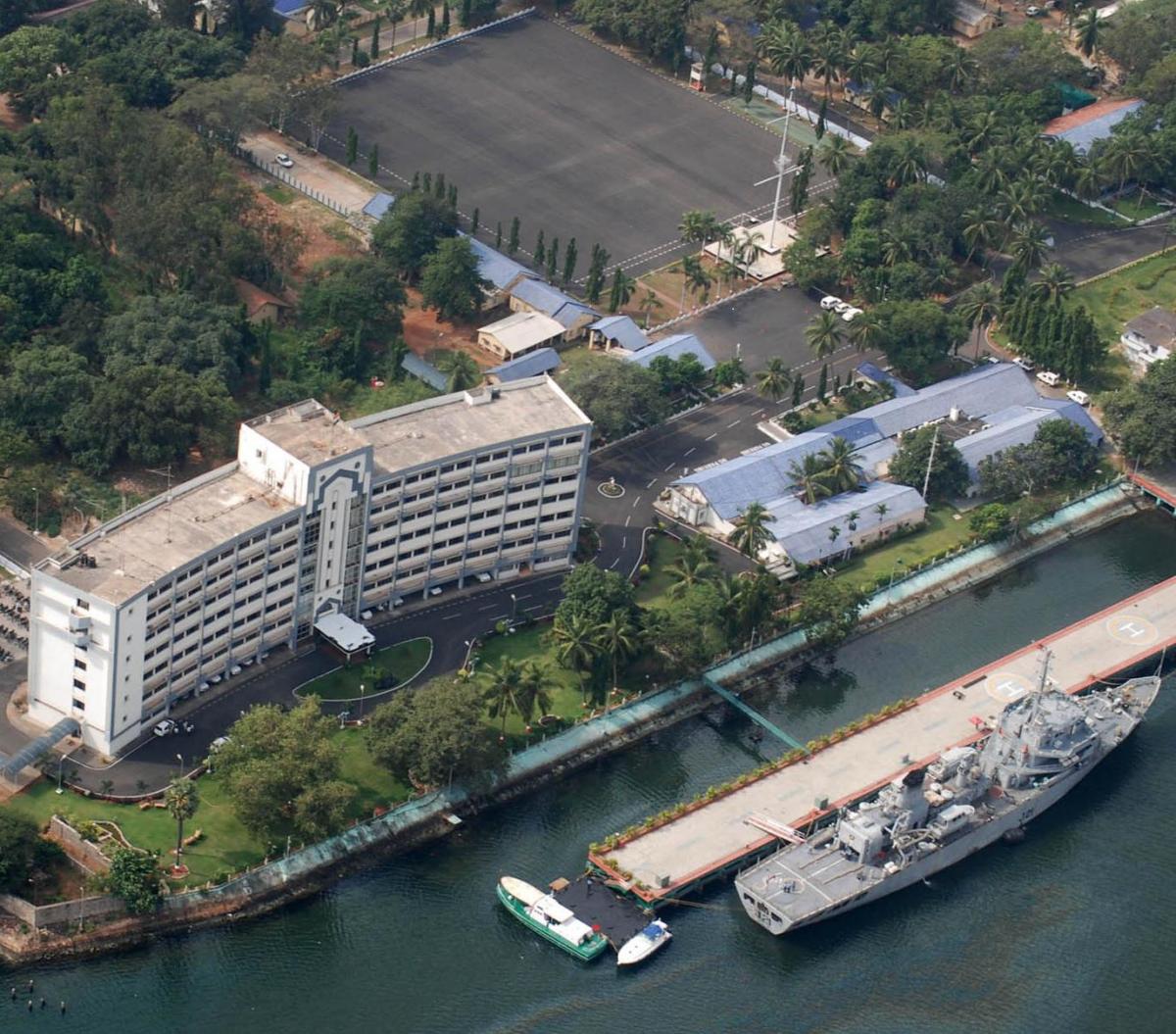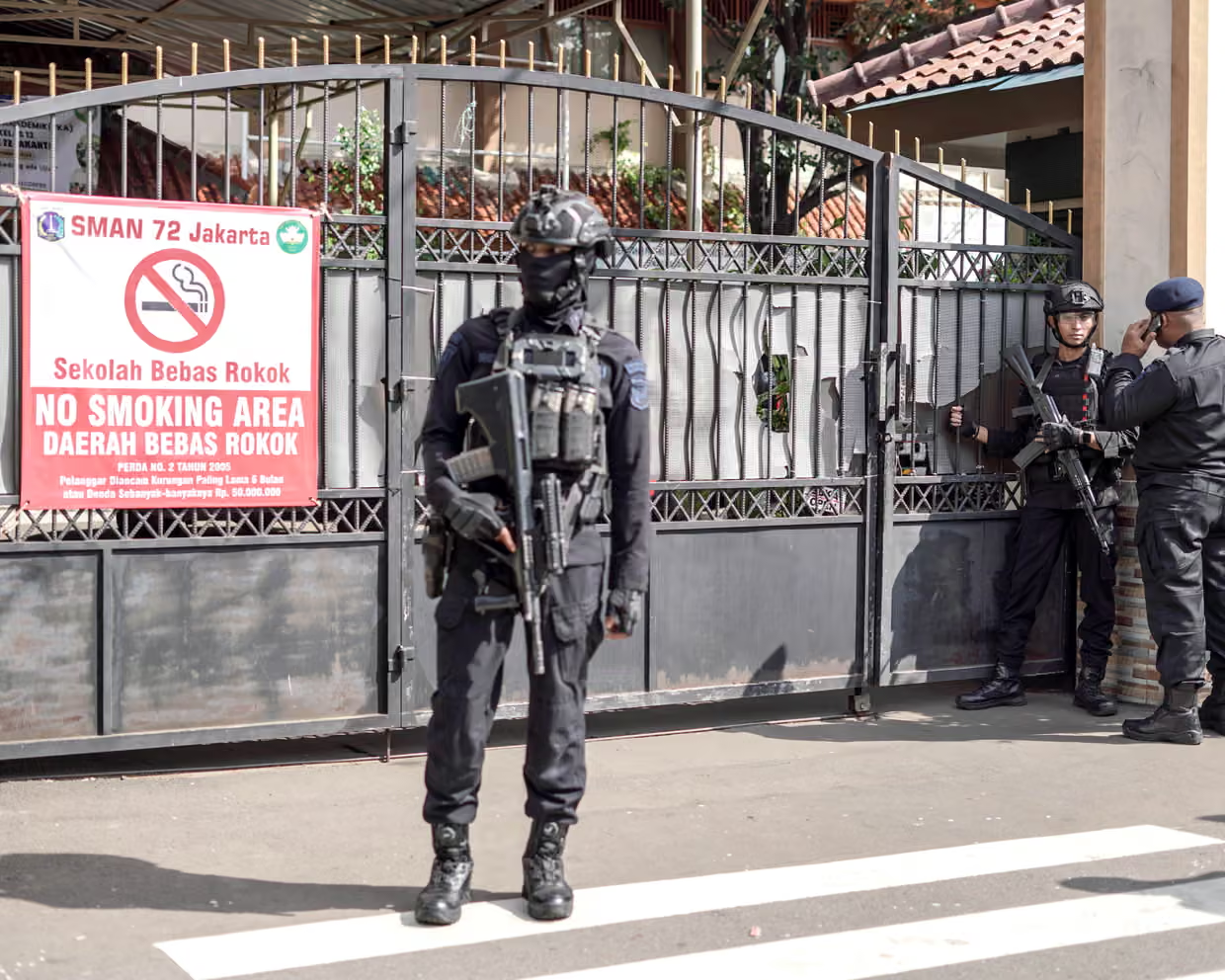
Pakistan’s Anti-India Spy Network Eyes Vital Defense Infrastructure from Sri Lanka
Pakistan’s Anti-India Spy Network Eyes Vital Defense Infrastructure from Sri Lanka
India’s intelligence agencies have been investigating an espionage network reportedly run by Pakistan’s external intelligence agency, the Inter-Services Intelligence (ISI), from Sri Lankan soil. The ISI uses legitimate government structures like the Pakistani High Commission and Consulate located in Colombo and Kandy, respectively, as staging grounds for anti-India activity. Pakistan has long used neighboring South Asian countries like Nepal, Bangladesh and the Maldives as bases from which to surreptitiously surveil or possibly attack India. Of late, Pakistan’s ISI seems to have expanded its network among Sri Lanka’s Muslim minorities and disenfranchised Tamil community by exploiting the existing trust between the Sri Lankan and Pakistani governments.
On September 9, Arun Selvarajan, a suspected LTTE (Liberation Tigers of Tamil Eelam, a.k.a. Tamil Tigers) sympathizer, was arrested in Chennai. India’s premier terror investigating agency, the National Investigation Agency (NIA), had retrieved incriminating documents, Indian and Sri Lankan passports and bank account information with suspicious transactions from Selvarajan, who had already infiltrated many vital installations in Chennai using his event management organization, ICE Events. This gave him access to corporate groups and government agencies. Those reported installations included the Indian Army’s Officer Training Academy (OTA) and the Indian Coast Guard office in Chennai, Tamil Nadu. He is also believed to have surveyed the regional hub office of the National Security Guard and the Atomic Power Station at Kalpakkam (The Hindu [Chennai], September 12). Selverajan is reportedly wanted in Sri Lanka for harboring and providing logistical support to Tamil rebels (Times of India [Mumbai], September 12; Colombo Page, September 13).
Selverajan’s arrest came at a time when Indian security agencies are tracking the trails of two Sri Lankan groups, Tamil refugees and Muslims. The Tamil refugees are mostly sympathizers of the already decimated Tamil rebel group while the Sri Lankan Muslims who have been apprehended in the last few years from southern India have links with the Colombo-based High Commission of Pakistan and their ISI handler Amir Zubair Siddiqui. Siddiqui was serving officially as a counselor in the visa section at the High Commission (Times of India [Mumbai], May 4). [1]
On September 18, 2012, Tamil Nadu’s Crime Investigation Department-Q (CID-Q) branch, which is the part of state police responsible for LTTE monitoring, arrested Thameem Ansari minutes before he flew to Colombo to hand over sensitive information to his ISI contacts in the Pakistani High Commission. A digital dossier on defense installations located in southern India, including the Defense Services Staff College (DSSC) at Wellington (Tamil Nadu), was seized from his possession. Videos taken from him by authorities also showed landing points on India’s southeastern coast, e.g. Nagapattinam, Mallipattinam, Karaikal and Thoothukudi. Based on his statements, Ansari’s ISI handlers were identified as Haji (a.k.a. Siraj Ali), Shaji and Amir Zubair Siddiqui (Asian Tribune, September 23, 2012).
Early this year, Muhammad Zakir Husain, another Sri Lankan, was arrested on April 29. He had conducted reconnaissance and photographed the U.S. Consulate in Chennai and the Israeli Consulate in Bengaluru, among other vital Indian installations such as the Eastern Naval Command in Visakhapatnam (Andhra Pradesh) and the Southern Naval Command in Kochi (Kerala) at the behest of his ISI handlers in Colombo. Husain, a resident of Kandy, Sri Lanka, was also tasked with recruiting youths from southern India, especially in Tamil Nadu, for subversive activities in India (Hiru News [Colombo], April 30). A seasoned spy and human trafficker with criminal records spanning as far away as Thailand, Singapore and Sri Lanka, Husain was supposed to set up bases in Karnataka and Tamil Nadu that would provide safe havens for ISI agents and militants (New Indian Express [Chennai], May 8). Pakistan has a consulate in Kandy, located in the central province of Sri Lanka and the NIA is investigating if Pakistan’s Kandy consulate is involved in this conspiracy.
The following month, Muhammad Husain Suleiman, a Sri Lankan national, was arrested in Kuala Lumpur, Malaysia, for his alleged links with Zakir Husain and his involvement with plots to attack the Israeli and U.S. Consulates (Rediff.com, August 17). Suleiman reportedly confessed to have worked with the ISI and was tasked to facilitate the entry of two Maldivian nationals into India to attack the foreign consulates in Bengaluru and Chennai. This terrorist plot was foiled through coordination between Indian and Malaysian intelligence agencies (First Post, August 17). Later this summer, Muhammad Salim, Siva Balan and Rafiique were arrested for their alleged role in a counterfeit currency racket in India reportedly sponsored by Pakistan. They all were found to be associated with Zakir Husain. The police seized fake Indian currency notes to the tune of $14,500 (900,000 rupees) from their possession (Deccan Chronicle [Hyderabad], July 23).
India’s NIA has been heavily involved in trying to uncover the links between Selvarajan and Amir Zubair Siddiqui, the Pakistani official in Colombo who was recalled after his involvement in this espionage network was exposed. Siddiqui was accused of recruiting Tamils in Sri Lanka and India for surveying and procuring information on military establishments in southern India. Selvarajan is the third Sri Lankan arrested for spying against India at the behest of Pakistan’s intelligence agency. Indian authorities are also presently seeking to extradite Muhammad Suleiman from Malaysia to unravel the ISI’s anti-India espionage network, which is believed to have spread to Sri Lanka, Nepal, the Maldives and Bangladesh.
After the military decimation of Tamil insurgent group in Sri Lanka in May 2009, the remnants of the LTTE, mostly sympathizers who have scattered and camouflaged themselves as civilians, have since taken refuge in India. Even though there are no strong cases to prove that these remnants are regrouping inside India or building operational bases, people like Muhammad Salim and Rafiique are perhaps trying to survive now and reemerge another day by, in the meantime, engaging in illegal activities at the behest of external agencies.
In September 2012, India’s external intelligence agency Research and Analysis Wing (RAW) reportedly warned about increased ISI activities in the Jaffna area of northern Sri Lanka exactly a week before Thameem Ansari’s arrest. At that time, the RAW had indicated that the ISI had deployed spy equipment, e.g. listening devices to monitor India’s maritime activities and intercept communications between Indian naval submarines and vessels (Pioneer [Delhi], September 12, 2012; TamilNet, September 18, 2012). Most likely, the focus was on India’s ambitious submarine project codenamed “Project Varsha,” based at the Eastern Naval Command in Visakhapatnam. Unearthing this Pakistani Consulate-linked spy network has been a matter of strategic concern for the Indian security apparatus.
To counter the ISI’s damaging intelligence activities, the Indian security establishment is cooperating with its Malaysian and Sri Lankan counterparts under the Mutual Legal Assistance Treaty, which facilitates mutual assistance in the investigation, prosecution and prevention of crime. However, reports of growing radicalization among Muslims in north and eastern Sri Lanka provides fertile ground for Pakistan’s intelligence agency to recruit assets in its spy war against India. The ease of travel between Pakistan and Sri Lanka facilitates such trips to the island country by Pakistani nationals. However, overstaying, seeking asylum and permanent settling through intermarriage has raised growing concerns for the Indian security establishments It is natural for Indian agencies to speculate that Pakistan-based transnational militant groups such as Lashkar-e-Taiba or the newly formed al-Qaeda in the Indian Subcontinent (AQIS) under ISI’s patronage may have snuck into Sri Lanka or the neighboring Maldives and consolidated themselves there to stage Mumbai-style terrorist strikes in future.
Animesh Roul is the Executive Director of Research at the New Delhi-based Society for the Study of Peace and Conflict (SSPC).
Note
1. See also, “Pakistan recalls ISI handler from its Colombo mission,” The Island, October 15, 2012, https://www.island.lk/index.php?page_cat=article-details&page=article-details&code_title=63883.


